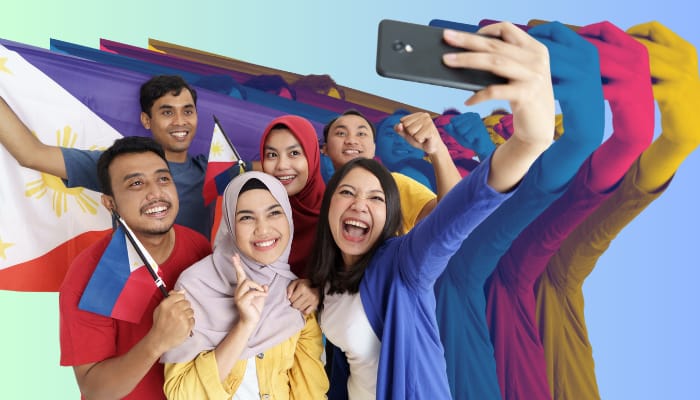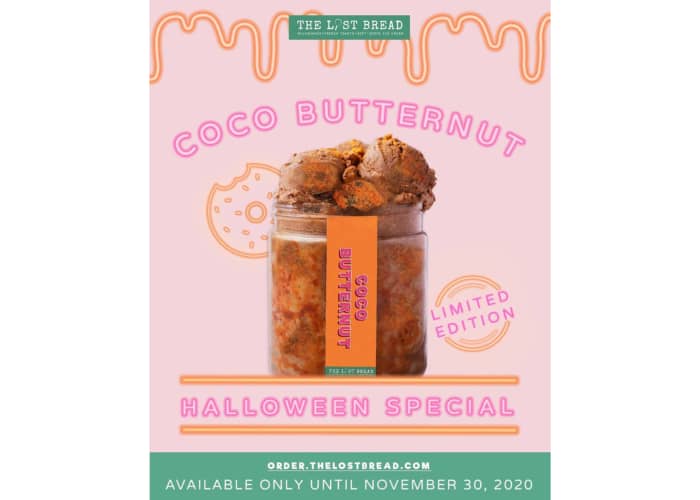Brands nowadays must go beyond surface-level marketing to forge authentic connections with younger Filipino prosumers—a generation that not only consumes but actively shapes and influences content and brand narratives. These digital natives are highly discerning, socially aware, and deeply value authenticity, purpose, and transparency.
Moreover, they reject traditional advertising in favour of brands that engage meaningfully, reflect their values, and invite participation in co-creating products, experiences, and social impact. For brands aiming to thrive in the Philippine market, cultivating genuine relationships with these empowered individuals is no longer optional—it is essential to remaining relevant, trusted, and influential in a culturally rich and fast-evolving consumer landscape.
In HAVAS Ortega’s latest report It’s a Gen-Z World and You’re All Just Living in It, it highlighted how the younger ‘prosumers’ of today are shaping culture, challenging norms, and setting the stage for a future where authenticity, purpose, and innovation define what truly matters.
MARKETECH APAC recently spoke with Philip Tiongson, general manager, Mx and data science at Havas Ortega; Angela Ayuson, senior strategist at HAVAS Ortega; and Richard Gemora, strategy specialist at HAVAS Ortega to better understand the report’s insights and how brands should truly engage with Filipino Gen Z ‘prosumers’ organically and authentically.
‘Surviving’ instead of ‘thriving’
In the report, it noted that 52% of the respondents felt that pandemic-era curfews and restrictions have lessened their urge to party, and 62% admit that they now have a lower appetite for social gatherings, having been desensitised during the long stretches of isolation.
Despite all this, there is a resurgence of reclaiming the ‘lost opportunities’ taken away from this generation, more specifically, the pursuit of “revenge” leisure and experiences. 63% of them prioritise personal enjoyment as a key goal, while 69% see parties and celebrations as an essential way to escape the world’s sadness and rediscover joy again.
For the agency, this reflects the utter desire of Gen Z ‘prosumers’ to enjoy life once again, especially when most of them are entering the workforce at a moment defined by economic headwinds and geopolitical volatility, making their transition from campus to career unusually fraught and challenging.
“Brands that hope to connect meaningfully and deeply and build lasting loyalty with this generation must ensure their offerings remain financially within their reach. Thoughtfully calibrated price reductions, smart bundles, or genuine value-add services can lower the cost-of-entry without undermining profitability — and more importantly, signal that the brand is attuned to Gen Z’s budget realities,” the agency stated.
They noted, however, that affordability alone is not enough, as Gen Z Filipinos expect brands to show up meaningfully in their day-to-day lives, acknowledging the messy “adulting” milestones that shape their identity – from first paychecks to setting out on their own in their own apartments.
“Communications and messaging narratives that reflect these realities, offer pragmatic encouragement, and inspire without being preachy can make these young consumers feel genuinely seen, heard, and understood,” they also added.
Stressing importance of mental health
Data also shows that 71% of the Gen Z prosumers have experienced mental health challenges, much higher than the national average of 49%. A huge 92% of those see mental health as one of the most pressing issues, recognising its impact on individuals, society, and the economy.
With 88% of the prosumers saying mental health is just as important as physical health, it is clear that many are ready to address mental wellbeing in holistic, systemic, and personal ways.
For the agency, they note to brands that mental health warrants special attention, adding that this generation openly wrestles with anxiety, stress, and burnout, and they welcome brands that help normalise the conversation about mental wellbeing issues and provide tangible support through empowering and inspiring messages, as well as events that are focused on equipping them with strategies and tactics on how to be mentally healthy.”
“As a generation that is vocal about psychological wellbeing, they will reward brands that help normalise therapy, build in digital downtime, or subsidise counselling hotlines. Even small gestures — a guided breathing prompt embedded in an unboxing video, a partnership with a free tele-therapy platform, or an encouraging life hack on Instagram or TikTok–signal that the company values people over campaign optics,” they explained.
Being at the front lines of social causes
With their strong digital connectivity and fluency in social media, Gen Z is emerging as the most globally informed generation in history. They are acutely aware of international conflicts, political unrest, and worldwide economic challenges.
According to data, 44% believe the world is heading in the wrong direction—a perception largely influenced by the actions of powerful global leaders. Additionally, 65% acknowledge that the planet is in the midst of an environmental crisis, with no country immune to the effects of climate change and ecological degradation.
These concerns play a significant role in shaping their worldview, personal values, and expectations of the societies they are part of.
For the agency, the Gen Z generation denotes that “performative activism” is a non-starter and that they can spot a token hashtag or a trend-chasing press release from far away — and they are quick to call it out.
“Authentic alignment begins with a clear-eyed understanding of the cause itself, followed by an honest assessment of whether the brand’s DNA truly connects to that cause and can truly contribute to the cause. Any discrepancy between the two–say, pledging gender equity while tolerating pay gaps internally within their company–will invite backlash and potential “cancellation”. Conversely, when the fit is genuine, advocacy becomes a natural extension of the brand story rather than a marketing by-the-way or a fodder for press releases,” they stated.
Filipino Gen Z Prosumers are said to place their trust in brands and companies that consistently reflect their values—not just in marketing campaigns, but also in leadership decisions, hiring practices, and supplier relationships.
For this generation, purpose is not something that can be treated as a token gesture; it must be deeply embedded in a brand’s everyday operations. Without this level of authenticity, they are likely to dismiss a brand’s efforts as superficial and unworthy of their attention.
“Walking the talk requires operational follow-through. A company that champions sustainability must show the receipts: Responsibly sourced raw materials, energy-efficient manufacturing, low-impact logistics, transparent reporting. The same principle applies to LGBTQ+ inclusion or any other social ambition; it starts with equitable policies for employees and extends through the supply chain to partners and vendors,” the agency added.
Cautiously embracing GenAI
Generative AI has quickly become a part of everyday life in the Philippines, with Gen Z Filipinos emerging as its most enthusiastic and skilled users. From academic tasks to creative content and side projects, they use GenAI to enhance productivity, express creativity, and manage large volumes of information.
However, their enthusiasm is balanced with caution—they are aware of AI’s limitations, biases, and potential for misuse. As such, they expect brands to provide not just innovative tools, but also clear ethical standards, transparency, and responsible practices. Filipino Gen Zs are quick to call out superficial efforts or breaches of trust.
“That nuance creates an opening — and an obligation — for brands. Gen Z Filipinos are not looking for empty hype; they want practical guidance, intuitive tools, and above all, ethical guidance on how to use these to the hilt with responsibility. They expect companies to hard-code transparency into every AI touchpoint, from data sourcing to content attribution,” the agency said.
They added, “A breach of that trust will be judged as harshly as a plastic-wrapped “eco”/environmentally friendly product or a rainbow logo masking discriminatory practices within the organisation.”
To earn their loyalty, the agency noted that brands must collaborate with educational institutions, government, and NGOs to promote digital literacy, ethical AI use, and real-world applications through initiatives like workshops and hackathons. Companies that combine innovation with integrity and invest in building Gen Z’s skills will be seen as trusted partners in shaping a responsible, AI-driven future.
How brands should properly connect with Gen Z prosumers?
For HAVAS Ortega, in order to connect meaningfully with Gen Z, brands must move beyond viewing them as a single, uniform group. Gen Zs are highly diverse, with unique subcultures rooted in passions like gaming, wellness, activism, and sustainability, as each community has its own language, influencers, and values.
Moreover, brands that engage with these nuances, such as sponsoring esports leagues or collaborating with sustainability-focused student creators, show they see Gen Zs as individuals, not just a youth demographic.
“That recognition that they are diverse and multidimensional as a generation, however, is meaningless unless brands back it up with radical authenticity and desire to meaningfully connect,” they said.
However, true connection requires more than targeted campaigns; it demands authenticity and humility. Gen Z expects brands to listen first, admit what they don’t know, and create space for dialogue rather than monologue. They want to be co-creators, not passive consumers.
“Gen Zs expect a dialogue where they can help shape the flow of the narrative and decide where, and whether, your brand belongs. Acting as a platform rather than a preacher invites them to remix the brand story in ways that suit their identity; essentially, work with them as active collaborators in shaping your brand message and narratives,” they said.
Lastly, by embracing collaboration and cultural fluency, brands can build emotional relevance that algorithms alone can’t achieve. In a world saturated with content, those that foster genuine, community-driven engagement will earn Gen Z’s trust, loyalty, and long-term support.
“When brands combine subculture fluency with genuine openness, they achieve something algorithms cannot truly deliver: Emotional, meaningful relevance. In a landscape flooded with polished content, the brands that win Gen Z loyalty will be the ones that know which community doors to knock on, and ready to listen, co-create, and evolve,” they concluded.







